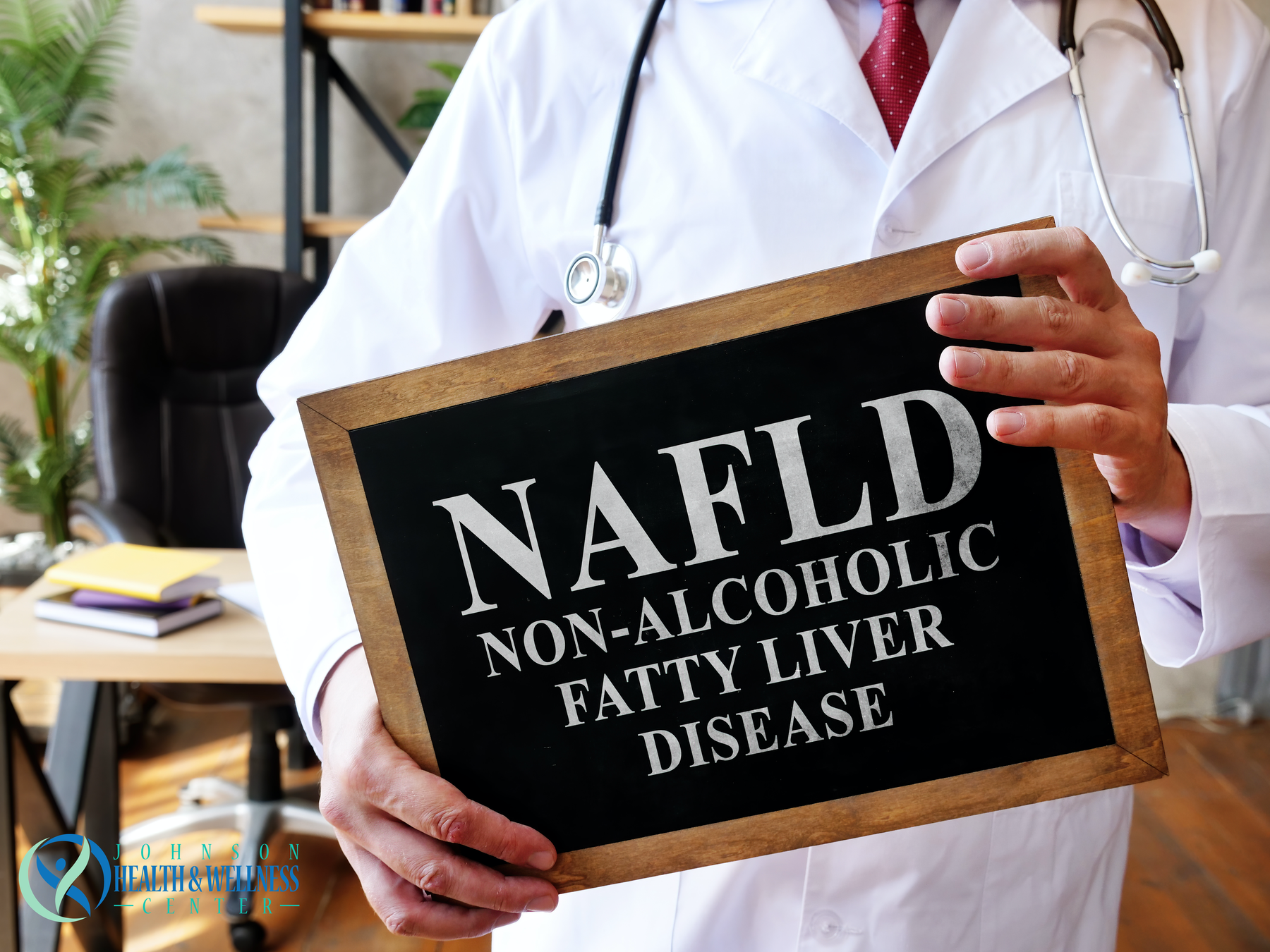
What is NAFLD
"Nonalcoholic fatty liver disease (NAFLD) is a condition in which excess fat is stored in your liver. This buildup of fat is not caused by heavy alcohol use. When heavy alcohol use causes fat to build up in the liver, this condition is called alcohol-associated liver disease.
Two types of NAFLD are nonalcoholic fatty liver (NAFL) and nonalcoholic steatohepatitis (NASH). People typically develop one type of NAFLD or the other, although sometimes people with one form are later diagnosed with the other form of NAFLD.
NAFL
NAFL is a form of NAFLD in which you have fat in your liver but little or no inflammation or liver damage. NAFL typically does not progress to cause liver damage or complications. However, NAFL can cause pain from enlargement of the liver.
NASH
NASH is the form of NAFLD in which you have inflammation of the liver and liver damage, in addition to fat in your liver. The inflammation and liver damage of NASH can cause fibrosis, or scarring, of the liver. NASH may lead to cirrhosis, in which the liver is scarred and permanently damaged. Cirrhosis can lead to liver cancer.
Experts are not sure why some people with NAFLD have NASH while others have NAFL."*
How NAFLD and Dementia are Linked
A study from the journal Neurology revealed that nonalcoholic fatty liver disease (NAFLD) is independently associated with cognitive impairment.
Nonalcoholic fatty liver disease (NAFLD) is an umbrella term for a range of liver conditions affecting people who drink little to no alcohol. As the name implies, the main characteristic of NAFLD is too much fat stored in liver cells.
Dementia and NAFLD are two frequent conditions that share underlying risk factors mainly in the realm of metabolic disease.
The study from the journal, Neurology, included 4,472 adults aged 20–59 years.
The participants underwent assessment of liver enzyme activity and hepatic steatosis by ultrasound, and underwent cognitive evaluation using the following computer-administered tests: the Simple Reaction Time Test (SRTT), the Symbol-Digit Substitution Test (SDST), and the Serial Digit Learning Test (SDLT).
The Study Results

Increased activity of the liver enzymes alanine aminotransferase (ALT) and aspartate aminotransferase (AST) correlated with lower performance on the SDLT, while increased alanine aminotransferase was also correlated with lower performance in the SDST.
The current studies suggest that NAFLD patients incur cognitive dysfunction.
Although if left untreated NAFLD can lead to much more serious conditions including cirrhosis and liver failure. The good news is that fatty liver disease can be reversed—and even cured.
8 Steps to Effectively Treat Fatty Liver Disease
1. Lose excess weight--losing between 7 and 10 percent of body weight can improve other symptoms of NAFLD, such as inflammation, fibrosis, and scarring
2: Research from 2017 suggests that the Mediterranean diet may help to reduce liver fat, even without weight loss.
3: Exercise: It's important to stay active when you have NAFLD. A good goal to shoot for is at least 150 minutes of moderate-intensity exercise per week.
4: Avoid foods with added sugars-Dietary sugars such as fructose and sucrose have been linked to the development of NAFLD.
5: Take an omega-3 supplement--A peer review study suggests that taking an omega-3 supplement may reduce liver fat.
6: Avoid known liver irritants--Certain substances can put excess stress on your liver. They include alcohol and certain over the counter medications.
7: Consider taking vitamin E--Vitamin E is one antioxidant that may reduce inflammation caused by NAFLD. Must take all components of vitamin E. This would include Mixed Tocopherols and Tocotrienols
8: Consider Herbs--A 2018 paper identified certain herbs, supplements, and spices that have been used as alternative treatments for NAFLD. Compounds shown to have positive effects on liver health include turmeric, milk thistle, resveratrol, and green tea.
Nutritional support plan
I have developed a nutritional support plan that includes research-backed documents and comprehensive details on the supplements I suggest for managing NAFLD. You can access the plan here: https://us.fullscript.com/plans/jcnn-nutritional-help-for-non-alcoholic-fatty-liver-disease-nafld
If you found value in this article, please use the social sharing icons at the top of this post and please share with those you know who are still suffering with chronic health challenges or autoimmune issues despite having medical management. Thank you, help me reach more people so they may regain their zest for living!
Always remember one of my mantras., "The more you know about how your body works, the better you can take care of yourself."
For more details about the natural approach I take with my patients, take a look at the book I wrote entitled: Reclaim Your Life; Your Guide To Revealing Your Body's Life-Changing Secrets For Renewed Health. It is available in my office or at Amazon and many other book outlets. If you found value in this article, please use the social sharing icons at the top of this post and please share with those you know who are still suffering with chronic health challenges, despite receiving medical management. Help me reach more people so they may regain their zest for living! Thank you!
ALL THE BEST – DR. KARL R.O.S. JOHNSON, DC – DIGGING DEEPER TO FIND SOLUTIONS
References:
*https://www.niddk.nih.gov/health-information/liver-disease/nafld-nash/definition-facts
https://www.ncbi.nlm.nih.gov/pmc/articles/PMC4820136/
https://www.ncbi.nlm.nih.gov/pmc/articles/PMC7400092/
https://aasldpubs.onlinelibrary.wiley.com/doi/pdf/10.1002/hep.22752
https://www.hindawi.com/journals/grp/2016/1459790/
https://www.ncbi.nlm.nih.gov/pmc/articles/PMC5789322/
https://www.ncbi.nlm.nih.gov/pmc/articles/PMC6165515/
https://www.ncbi.nlm.nih.gov/pmc/articles/PMC5960814/
Compliments from Functional Medicine University



